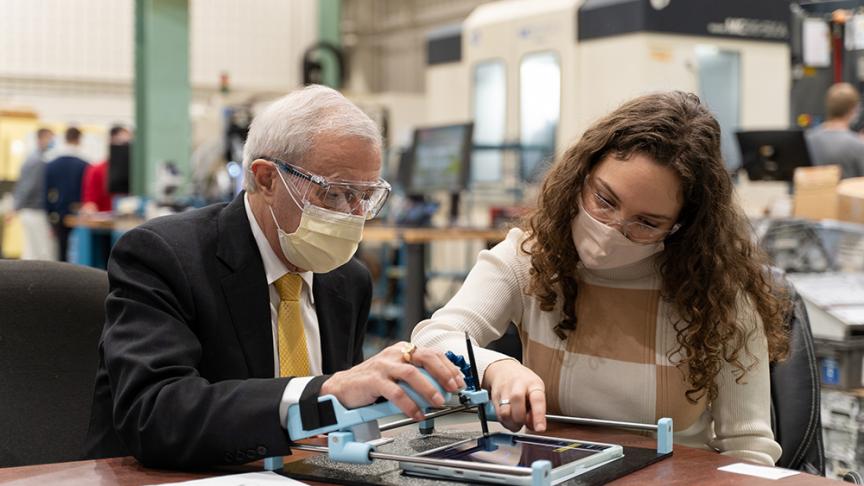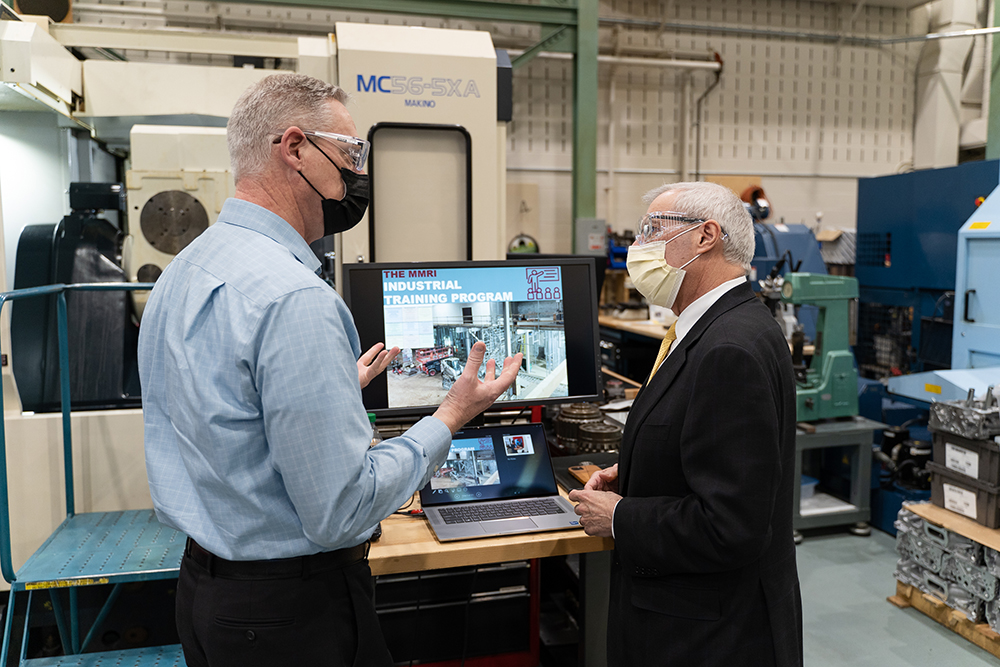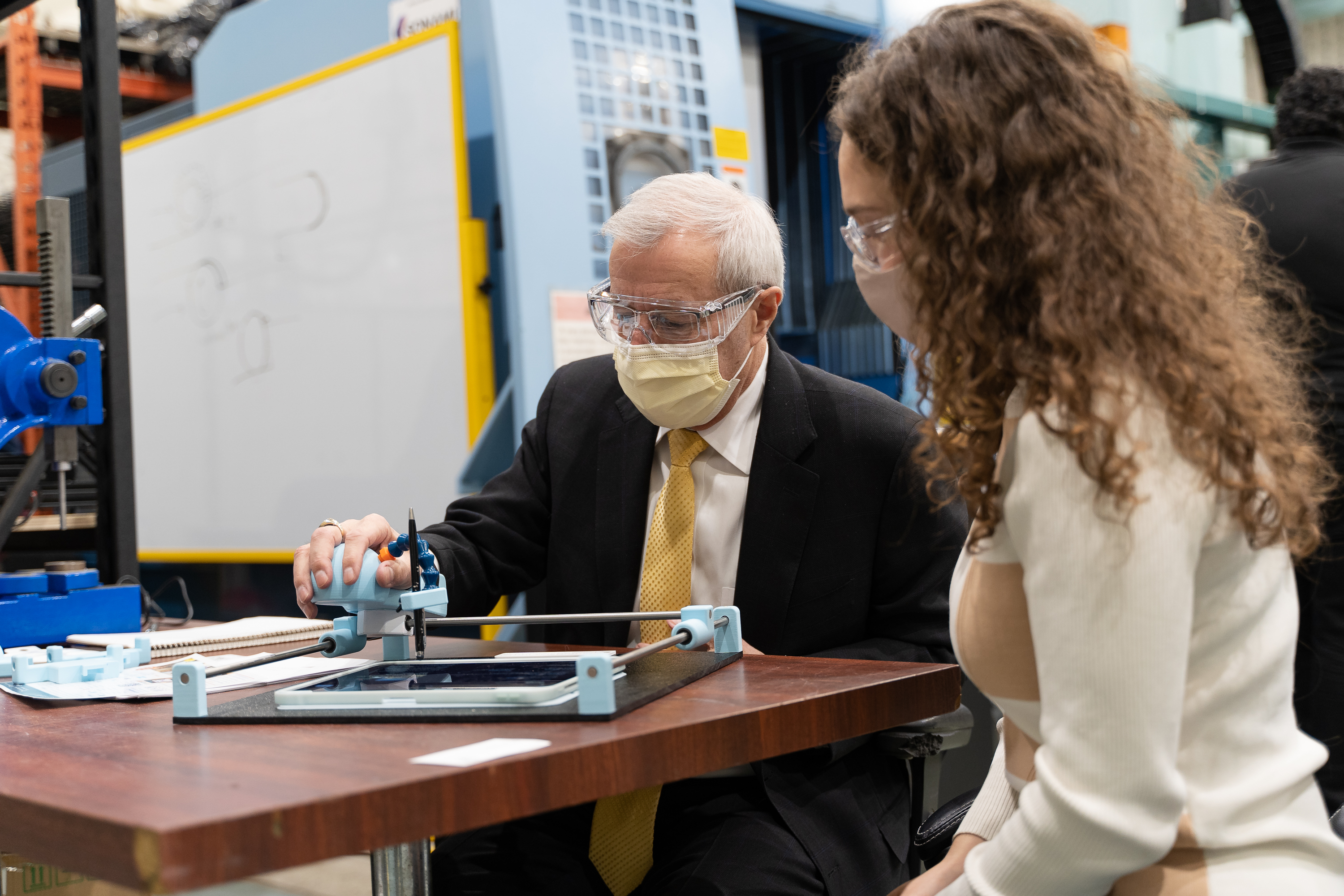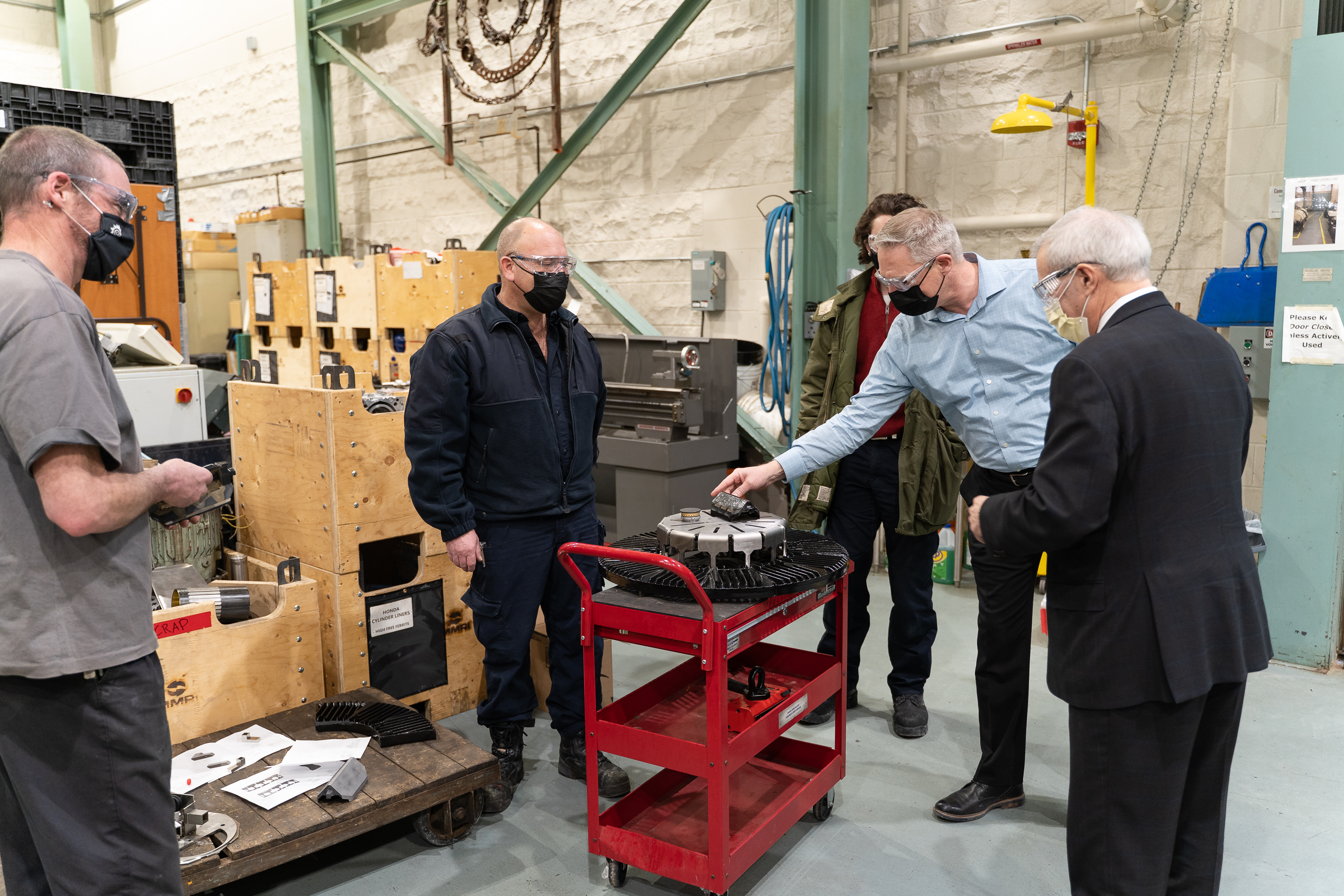Students and student entrepreneurs showcase MMRI’s cutting-edge innovation for minister Vic Fedeli

Inventor, entrepreneur and engineering student Lianna Genovese shows MPP Vic Fedeli how to use her invention, Guided Hands, an assistive device that empowers people with limited hand mobility to paint, draw, write and use technology. (Photo by Matt Clarke/McMaster University)
Ontario Minister of Economic Development, Job Creation and Trade Vic Fedeli visited the McMaster Manufacturing Research Institute (MMRI) to explore cutting-edge innovation in advanced manufacturing at the university.
Fedeli toured the laboratories Tuesday with MMRI director Stephen Veldhuis, who described how the world-class institute finds solutions for Ontario’s complex manufacturing challenges.
Fedeli paused to engage with students as they worked on solving real-world challenges across various manufacturing processes.
“The McMaster Manufacturing Research Institute is having a tremendous impact on Ontario’s economy,” Fedeli said.
“It was great to see first-hand the work they’re doing as part of Ontario’s Advanced Manufacturing Consortium in supporting Ontario-Made projects and helping make our province open for business.
The Ontario Advanced Manufacturing Consortium helps create and build industry adoption of advanced manufacturing technologies, while stimulating upskilling, job creation and commercialization. The partnership includes McMaster University, the University of Waterloo and Western University.
The consortium works with industry partners and offers its technical expertise, with the consortium thus far resulting in the creation of 335 new jobs.
The consortium has been connected to 2,639 projects, of which 69 have been engaged in COVID-19 response. There have been 896 companies involved, including 547 startups and SMEs. Collectively the consortium has developed 4,519 prototypes resulting in 320 commercialized products and 874 technologies implemented in production.

Lianna Genovese, a fifth-year biomedical and mechanical engineering student and CEO of ImaginAble Solutions, is one of these industry partners.
Genovese began her research and development for Imaginable Solutions’ invention, Guided Hands, at MMRI.
She demonstrated the device for Fedeli, showing how it helps people with limited hand mobility write, paint, draw and access technology.
Genovese received the National James Dyson Award for her invention, which launched into the market in August 2021. She is currently nominated for a YWCA Hamilton Women of Distinction Award: Young Trailblazer.

“As MMRI’s industry partner, I had the incredible opportunity to chat with Minister Fedeli about my company ImaginAble Solutions and our product that was innovated here at McMaster in the MMRI,” Genovese said.
“It was wonderful to talk about our scaling strategy for Guided Hands and the great resources Ontario has to make it happen. As well, it was quite amazing to see the Minister use Guided Hands and play a few games on an iPad!”
The MMRI facility will soon be expanding into a new 15,000-square foot facility at the McMaster Innovation Park – another step to building our collaboration with industry.

Veldhuis said Fedeli showed a deep interest in the students, their work and their unique role in contributing to economic impact and job creation in the province.
“I was pleased to highlight the impactful and crucial work ongoing at the MMRI,” Veldhuis said. “It’s exciting to show how industry projects are incorporated into our academic research and our project-based approach to learning at McMaster.
The more complex the challenges, the better the research.”


